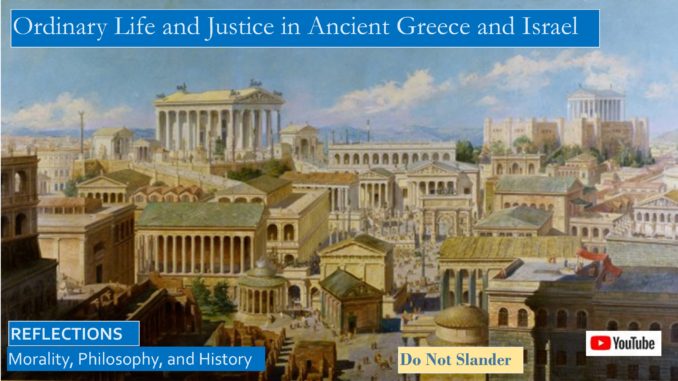
The ancient world is very different from the modern world. We in the modern world view life is sacred, today we expect our children to survive until old age, because modern medicine ensures a long healthy life to most of us. If I had lived in the ancient world, I would have died as a teenager from appendicitis. In the ancient world, parents often did not name their children until they were a few weeks old due to the high infant mortality rate. Only half of children survived to adulthood, some scholars estimate that only one in ten survived to a ripe old age.[1]
YouTube script for this blog: https://youtu.be/vl8KGL5Yx2w
The ancient world was a wild and savage place without the security we take for granted, the anxieties of the ancients are not our anxieties. Few in the ancient world lived in cities or towns, most lived in the forests and fields, the wolves and lions hid in the forests, they could rip apart the livestock and sometimes your children. The virtuous pagans sought to control their passions, their anxiety was they feared the wild passions that drug them to the level of the beasts in our nightmares.
We who live in the modern world have quite an opposite anxiety, we live in cities, our lives are organized by clocks and computers and cars, we only safely see wild animals in zoos. We do not fear our passions, instead we seek to be passionate, our modern anxiety is we will become like the machines that rule our lives, we fear that we will be like Spock or Data in Star Trek.[2]
We have a hard time putting ourselves in the shoes of the ancients, we forget how thoroughly the inventions and the social changes made possible by the Industrial Revolution have so thoroughly changed both our lives and mindsets. The science that makes technology possible robs us of awe and wonderment that the ancients felt when confronted by the forces of nature, the ancients thought weather was caused by thunderbolts hurled by Zeus.
Even the poorest among us have a closet full of clothes, our used clothes fill landfills, even aborigines in deepest Africa wear Michael Jordan jerseys. The Bible bids us to feed and clothe the poor, these each were just as difficult before the days of factories. Have you noticed how many fairy tales feature the spinning wheel? Nearly all women spun yarn from wool and flax and used looms to weave coarse cloth. The book “Life in Biblical Israel” has many pictures of ancient looms and spindles.[3] Women spinning and weaving cloth was so common that even goddesses in the Odyssey had spinning wheels. Most people owned only one or two changes of clothes. We are puzzled when young Francis becomes estranged from his cloth merchant father when he sells a few bolts of cloth to buy building materials to repair some run-down chapels, but these were probably as expensive as a good used car is today.
TYPICAL ANCIENT HOUSES
The typical early Old Testament house had two stories with a roof. The first floor often had stables and work areas, perhaps you relieved yourself at night in the stables, and the living quarters were in the second floor. You could also sleep on the smooth flat roof where it might be cooler, the Mosaic law requires you build a parapet around the edges of the roof so nobody can fall off. Sometimes rooms were built on the roof.
These Old Testament houses were like the early Greek houses, the women’s quarters were in the rear, innermost parts of the second floor away from the street. This was the layout for the palace in Ithaca in the Odyssey. When there were windows they were usually small. Often the first floor was locked with wooden keys.[4] In the ancient Greek houses the symposia, or drinking parties, were on the first floor near the street. The men would often invite girls who played the flute and had other talents, but the wives were not welcome at these drinking parties.
JUSTICE IN THE ANCIENT WORLD
When someone attacks us or tries to steal something from us, what do we do? We call the police, they file a police report, they look for evidence, maybe dust for fingerprints, or review recordings from security cameras. Sometimes the police capture or go pick up the bad guys, they go to trial, and if they are guilty they go to prison or pay a fine or both.
This has only been totally possible for the past hundred years; this system has only been developing for the past three centuries or so. For most of recorded history there were no professional policemen, there were jails but no prisons, there were no well-developed court system available to all citizens, and forensic evidence was made possible by modern science.
The commandment, Do Not Bear False Witness Against Your Neighbor, reflects this reality, eye witness testimony was the only evidence available, your reputation was your only defense.
If you had a complaint with someone you might bring it up to the elders in the community, but usually you were on your own to seek revenge. The ancient Greeks were the first to build a rudimentary judicial system, serious offenses became a crime against the state to control the chaos caused by revenge feuds. His draconian penalties are thought by us as harsh because all crimes were punishable by death, but what other choices did he have? You could not sentence people to prison for years or for life, there was not room for this to be a common sentence.[5]
Why did Jesus exhort us to visit those in jail? Simply because jails in the ancient world were meant to hold people, if their families and friends did not bring them meals they may just starve. You probably had to bring them water to drink as well. There was no concept of habeas corpus, the requirement that you could not imprison someone without charging them with a crime, was unknown in the ancient world, Dr Wikipedia says this concept first originated in England in the fourteenth century.[6] So though it was rare to be jailed, if you were so unlucky to anger the monarch or local governor your loved ones might be stuck feeding you for many years.
EXAMPLES FROM ANCIENT LITERATURE
Odysseus recalls how his crew did the Viking thing, raiding coastal villages for booty and women, they received some justice when they lingered too long and them men from the surrounding towns attacked them.
Odysseus’ wife Penelope waited for more than a decade for her husband to return home from the Trojan War. In Greek culture widows were expected to remarry when they had an estate, Penelope had to endure the stay of over a hundred local suitors who threatened to consume her estate while she entertained them, she had no legal redress. Her son Telemachus could only call a meeting of the elders who did nothing. When Odysseus returned, although he was king, he had to disguise himself as a beggar to scope out the situation, otherwise they would not murder him and seize his wife and estate. His only recourse was the Clint Eastwood stand-off, slaying all the suitors with only his son Telemachus and a few loyal servants. This sounds harsh, but what else could he do? There were no police, there were no courts, there were no prisons, he was the king, and his warriors had all died on the way home.
Then the fathers of the slain suitors then put on their armor to seek revenge for the slaying of their sons. The endless cycle of revenge killings was only ended by the direct intervention of the goddess Athena, or so the story goes.[7]
We have a clearer picture how the Greek judicial system worked around the time of Socrates, and we have a rather complete account of Socrates’ trial and sentencing, one of the Platonic dialogues includes his short stay in jail waiting for the time of his execution. In the Athenian democracy, since all citizens served in the military, all citizens could vote. Citizens could volunteer to serve on the juries, minor cases would have 201 jurors, capital cases like those of Socrates had 501 jurors. There were no judges, there were no attorneys, there were no established procedural rules for court proceedings, you had to argue for your innocence. Any citizen could bring charges, there were no permanent prosecutors. Each side had a set amount of time as recorded by a water clock, witnesses could be called, all trials were argued in a day, the juries did not deliberate, they simply voted immediately, and the next day the juries voted on the punishment.[8]
We read in the Old Testament that Joseph and those unfortunate servants who irritated Pharaoh could spend years in jail. There was no appeal, they could be forgotten and left in the dungeons for many years. We can surmise from these comments that perhaps prisoners in Egypt may have been treated better than usual, they must have been fed by the state. We also have references in the accounts of Socrates in the Greek jails, and later of St Paul in Roman jails, that ancient jails allowed visitors to stay for extended periods, much like visitors in hospitals.
REMEMBERING HISTORY IN THE ANCIENT WORLD
The ancient world had no printing presses, all literary works had to be laboriously copied by hand onto expensive velum made from animal skins or papyrus, the ancients often had to memorize texts they read or heard once if they wanted to refer to them again, oral tradition was much more important than there are today. We in the modern world trust most the latest discoveries, science is always challenging yesterday’s assumptions, but this was not true in the ancient cultures, the ancients treasure tradition and long-settled authority.
Writers in the ancient world just could not record history with the precision we do today, they had a much different view of the world than we do today. This is excellently expressed by this author:
“For the people of the biblical word, history as we understand it was almost meaningless. For them, uninterrupted facts did not help them understand who they were. Consequently, the two most common genres in the Bible are story and law, not history. But biblical stories are not lies or propaganda. Storytellers in the Bible did not just make up the Bible, but they did explain what was going on around them in colorful and artistic language, which we lovers of history must patiently learn to understand and appreciate. History is the genre of ‘what happened?’ Story is the genre of ‘what does it mean?’ “[9]
[1] Robert Garland, “The Other Side of History: Daily Life in the Ancient World”, lectures recorded by The Great Courses, (www.thegreatcourses.com, 2012).
[2] Phillip Cary, “Augustine: Philosopher and Saint,” lectures recorded by The Great Courses, (www.thegreatcourses.com, 1997).
[3] Phillip King and Lawrence Stager, “Life in Biblical Israel” (Louisville, Westminster John Knox Press, 2001), pp. 146-162.
[4] King and Stager, Life in Biblical Israel, pp. 30-35.
[5] Ian Worthington, “The Long Shadow of the Ancient Greek World,” lectures recorded by The Great Courses, (www.thegreatcourses.com, 2009), Lecture 5, Dracon of Athens and the Birth of Greek Law.
[6] https://en.wikipedia.org/wiki/Habeas_corpus
[7] Homer, “The Odyssey,” translated by George Herbert Palmer (New York: Barnes and Noble Classics, 2003, and [7] Elizabeth Vandiver, “The Odyssey of Homer,” lectures recorded by The Great Courses, (www.thegreatcourses.com 1999).
[8] Robert Garland, The Other Side of History: Daily Life in the Ancient World, lectures recorded by The Great Courses, (www.thegreatcourses.com, 2012), Lecture 10, Being Greek, and also course on Draco and Solon
lectures recorded by The Great Courses, (www.thegreatcourses.com, 1999),
[9] Victor Matthews and Don Benjamin, “Social World of Ancient Israel, 1250-587 BCE” (Grand Rapids: Baker Academic, 1993), p. xix.

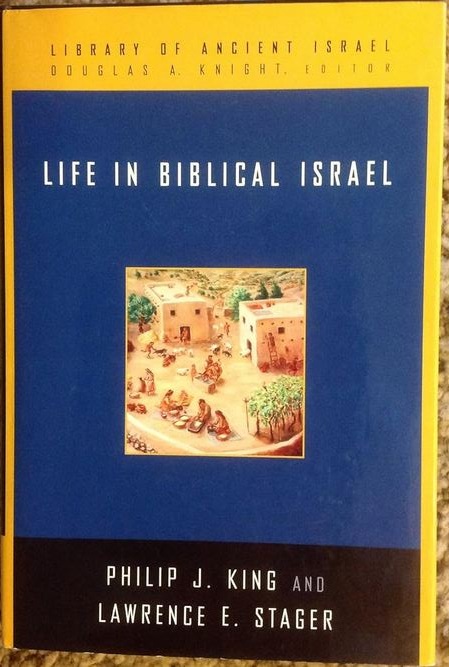

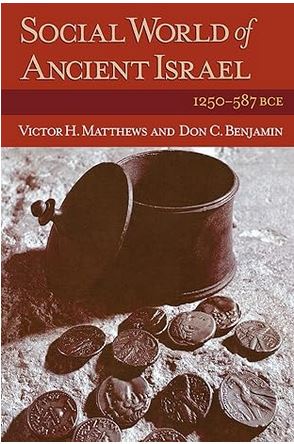
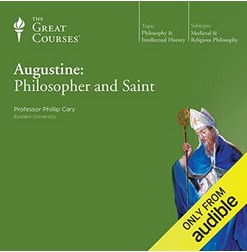
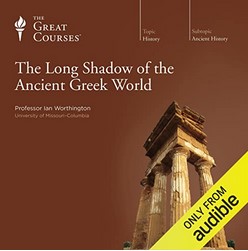
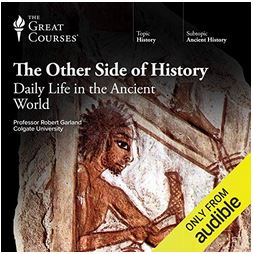
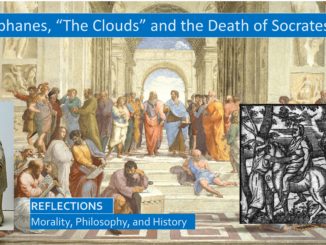
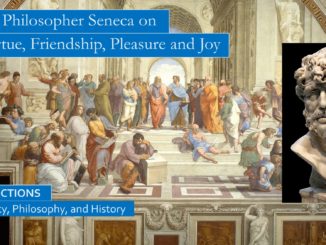
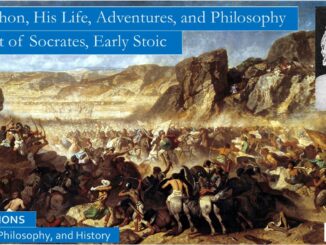
6 Trackbacks / Pingbacks